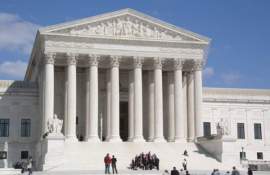
Guardianship Explained

Family Forms
What is Guardianship?
Guardianship is classified as the expressed, legal permission granted to an individual allowing them authoritative power over the affairs of another individual. Although the notion of Guardianship is expansive within the legal spectrum, the most common forms of Guardianship are typically associated with estate planning and custodianship.
Guardianship is typically awarded to the birthparents – or adopting parents – with regard to a child; in addition to custodianship that is awarded with regard to the provision of the child’s wellbeing, Guardianship allows for the parents – or guardians – to act on behalf of their children prior to legal-adult status.
Guardianship with regard to a will, estate, or trust allows an individual to command responsibility of assets regardless of legal ownership; unless revoked, a Guardian is permitted to control the dispersion of an asset in lieu of ownership
Guardianship and Minors
This type of law deals with legal issues surrounding individuals classified as ‘minors’ – or child - who is below the age of legal adulthood. Although the stipulations correlating to minors vary by locational statutes, minor are allowed the same legal and human rights as adults. A minor is legally-prohibited from acting in a fashion in which an individual legally permitted to consent to specific acts and deeds, signing or participating in the formation of a legal contract, participating in activities or events that require the presence of a legal guardian, and mandating decisions or consent to events in lieu of those expressed by a legal guardian
Legal Guardians
Guardianship entails the legal and lawful responsibility of one individual for another, yet the parameters of minor laws allow for additional circumstances and pertinent details that can affect the ultimate determination – albeit responsibility - of guardianship:
Custodianship: Court-mandated permission granted to an individual allowing them to mandate decisions with regard to the wellbeing, safety, and benefit with regard to a minor
Emancipation: In a legal sense, emancipation is the removal or relinquishment of control from one party with regard to another party. In terms of legal Guardianship – or individual Guardians – a petition can proposed to disallow Guardianship with regard to a legally-appointed Guardian
Power of Attorney: Power of Attorney is legally-expressed permission allowing an individual to act in place of another individual in legal settings which would otherwise be prohibited. While individuals are unable to authorize legal forms and documentation in lieu of another individual, the power of attorney grants this type of Guardianship; Guardians with power of attorney are legally-able to sign, endorse, and substantiate said documentation on behalf of another individual
Guardianship Legal Assistance
The procedures and legislation implicit in the process of the investigation and lawsuit with regard to a Guardianship charge can fluctuate on an individual, case-by-case basis. Elements examined in the determination of the validity and legality of a Guardianship suit exist in conjunction with expressed documentation that illustrates the appointment of Guardianship. In the event that an individual wishes to remove the title of Guardian from an individual in possession of that role, they are encouraged to consult with an attorney specializing in Guardianship, estate law, administrative law, and family law.
NEXT: Emancipation




















